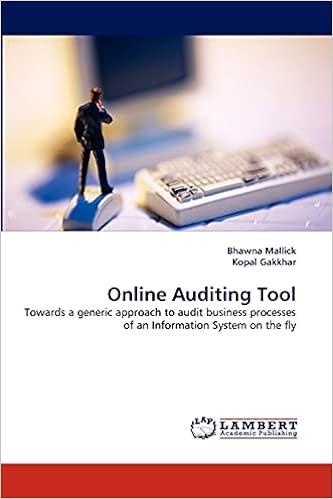Question
I understand that this is an example with almost no context, but lets proceed anyway. As weve talked about opportunity cost, weve spent a good
I understand that this is an example with almost no context, but lets proceed anyway. As weve talked about opportunity cost, weve spent a good deal of time arguing that the best decision is the decision that makes the outcome better than the next best alternative. Suppose three people are in a team with total productivity of $400. Lets call them Diana, Mary, and Florence. Suppose weve chosen these individuals because among all combinations of individuals they produce the most team productivity. Now replace Diana by the next best alternative person from outside the existing team, and lets say that total output drops to $350. Production with Diana is $400. Production with the next best alternative is $350. Having Diana is better than the next best alternative by $50. Diana should be able to use this as bargaining power to extract the lions share of this incremental productivity. Diana could bargain that the team should be willing to pay at least the value of $49.99 to Diana and the other two team members are still better off by the net $0.01 remaining of added productivity. By giving Diana the entire $50, at worst the remaining team members should be indifferent to whether Diana or the next best alternative is on the team. Suppose that something similar is true for Mary and Florence. When Mary is replaced by the next best alternative, productivity drops to $350. When Florence is replaced by the next best alternative, productivity drops to $350. As a result, they each have bargaining power over the team for the worth of about $50. Heres what I see at this point; out of $400 of productivity, each team member has bargaining power to extract $50 from the team, for a total of $150. This leaves $250 of productivity remaining that is accounted for by the team organization and not inherently able to be appropriated by any individual currently in the team.
Required:
1. Speculate on how the remaining $250 of productivity of the team will be distributed?
2. Speculate on how the remaining $250 of productivity of the team should be distributed?
3. Do you operate in a team?
4. Accounting tends to operate by collecting information about what has happened and not about next best alternatives. How do we typically collect information about next best alternatives, or do we? Is it important? This is a chapter on the use of accounting for monitoring purposes, so I suppose thats the context of my question about the relevance of accounting for a team.
5. My example isnt the only way the numbers could work out. Its possible that replacing each person in turn would cause productivity to drop by $200. This gives the collected team members bargaining power over a total of $600 when total productivity is only $400. What happens then?
Step by Step Solution
There are 3 Steps involved in it
Step: 1

Get Instant Access to Expert-Tailored Solutions
See step-by-step solutions with expert insights and AI powered tools for academic success
Step: 2

Step: 3

Ace Your Homework with AI
Get the answers you need in no time with our AI-driven, step-by-step assistance
Get Started


